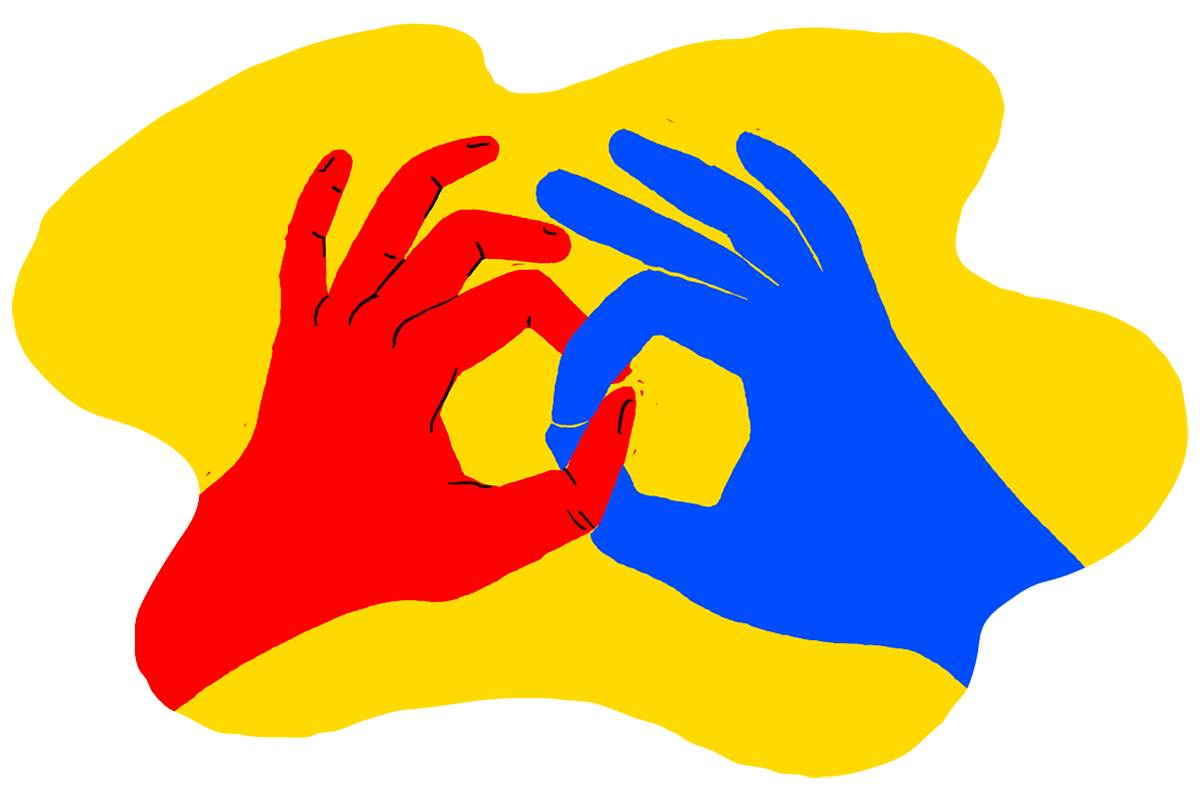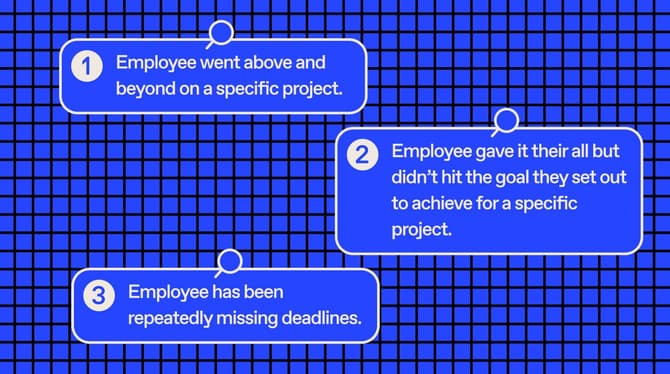Relationships are hard, aren’t they?
Getting to know someone for the first time, working with someone who has a different perspective, working through conflict, and simply learning to trust someone are challenges we’ve all gone or will go through at some point in our life.
It’s not surprising that many people have dedicated their lives to studying the nature of human relationships; human beings are complex systems, and it’s fascinating to learn about them (we think so!).
Earlier this year, we got to see iconic psychotherapist and bestselling author Esther Perel deconstruct the complex system of relationships while following her one perennial truth, that the quality of your relationships is what determines the quality of your life. Not only has she studied relationships between loved ones, she’s also unfolded the complexity behind professional relationships between colleagues.
Esther’s powerful words got us deeply interested in a new concept we hadn’t heard of before: Relational Intelligence.
Exclusive online summit
·
May 23 2024
Moments that matter: how to seed great work
What's in this article
- What is Relational Intelligence?
- Why is Relational Intelligence important in our workplaces?
- But what about the work?
- How do you build Relational Intelligence?
- Exercises to practice curiosity and deep listening with a group
- How can you measure the quality of your relationships with the people you work with?
What is Relational Intelligence?
There are many ways to define Relational Intelligence, but our preferred one is (no surprise!) inspired by Esther Perel’s work:
Relational Intelligence is our ability as humans to connect with others and establish trust.
You may have heard of Emotional Intelligence before, and wonder how it connects with Relational Intelligence. The way we see it, strong Emotional Intelligence enables Relational Intelligence to develop and expand. When you’re able to identify and understand your emotions and those of others, you’re better equipped for relationship building.
In the new world of work, where behavioural skills take precedence over technical skills, Relational Intelligence is a top competitive advantage for business success. Once considered a “soft skill” (what HR guru Josh Bersin refers to more aptly as “power skills”) in the workplace, our abilities to connect with and influence others, build trust, manage conflict, and communicate effectively are more important than ever. Let’s dig into that a bit further.
Why is Relational Intelligence important in our workplaces?
The workplace is evolving at a dizzying pace and it’s hard for organizations and people to keep up. As Gallup continues to demonstrate in their research, the question isn’t if these changes are coming—it’s how to deal with them.
Numerous studies show that while we’re more connected than ever in the digital world, we struggle to find that same connection in the real world. Just as much as relationships enrich our personal lives, it is often the quality of our relationships at work that determines the quality of our work, and our success. Stronger relationships make for more meaningful discussions, more innovative solutions, and ultimately better business outcomes.
Signs of strong workplace relationships:
- People are vulnerable with each other and share their honest thoughts
- People willingly share information and learnings with one another
- People and teams experiment with new ideas and think outside of the box
Impact on the business:
- The fear of having difficult or sensitive conversations is removed and alignment increases
- Silos are broken and teams work together towards common goals faster and more efficiently
- The fear of failure is removed and innovation and creativity unfold
As Esther Perel says: “No amount of money or purpose or even free food can compensate for a poisonous relationship at work.” She also urged organizations to re-evaluate where they invest their time and resources and focus more on the quality of relationships in the workplace.

But what about the work?
Let’s step back and name the elephant in the room here: is there not a danger that if we focus so much on workplace relationships, the work just won’t get done?
Managers have big mandates to reach, and between the needs of your team and the needs of your boss, you might be wondering when you’ll have time to prioritize building Relational Intelligence. The good news is that relationship-building doesn’t have to come at the price of diminished team performance. On the contrary…
Task-oriented leadership is often contrasted against relationship-oriented leadership, but we strongly believe that they don’t have to work in opposition. In the long-term, focusing on relationships and enabling them can lead to higher performance and better outcomes. As they say,
Alone you go faster, together you go further.
Being relationship-focused doesn’t mean trying to ensure that everyone is friends, or that no discomfort or disagreement ever comes up. In fact, done properly, relationship building should not discourage conflict itself but rather encourage the safety to challenge ideas and work through conflict, so that when conflicts do arise, they can be resolved and lead to better outcomes.
Having people with strong Relational Intelligence on your teams not only contributes to a culture of engagement but to better and more innovative ideas being generated, enhanced team dynamics and collaboration and a stronger sense of shared meaning and purpose. That’s why it’s fundamental that managers encourage and foster these relational bonds both within and outside their team.
Don’t worry, we’re here to help with just that.

How do you build Relational Intelligence?
So how do you build Relational Intelligence, whether your own or on your team? There is no secret recipe, but the best place to start is with genuine curiosity and deep listening.
At our Relational Intelligence workshop at C2 Montreal 2019, in just 90 minutes we were able to generate true connection between people who knew nothing about each other prior to the conference. Attendees experienced how exercising their curiosity and deep listening helped them to better perform the same task at the end of the workshop as they had at the beginning.
Exercises to practice curiosity and deep listening with a group
Try these exercises with your team to help build those genuine connections.
Being heard, not seen
Invite people to form groups of 3 or 4 people. Ask them to close their eyes and give them 5 minutes to talk and try to find 3 things that they have in common and that makes their group unique or distinctive compared to other groups. This might be uncomfortable at first, but the lack of visual contact forces people to truly focus on what others are saying.
Opening up the conversation
Have everyone sit in a group and pick some questions they can ask each other. You can start with low intensity questions such as the following:
- Can you tell us about one person who has influenced you in your life?
- Do you think the world will be a better or worse place 100 years from now?
- What is something new you’ve learned to do in the past year?
- Can you share with us a treasured memory?
There are hundreds of questions like these that people can ask each other. You can also invite people to contribute their own questions. It’s in the small discoveries that people make about each other that connections start to build.
Getting real, and really listening
Invite people to practice deep listening in pairs. Ask one person (‘the sharer”) to share a situation that is real for them right now for which they have no resolution. Invite the sharer to speak while their partner (“the listener”) listens.
After 3 minutes, instruct the listeners to now listen differently, either by remaining silent or asking powerful questions. Insist on the fact that the listener should resist the urge to jump in with ideas or try to comfort the other person.
Here are some examples of powerful questions Relational Intelligence that can be suggested:
- How do you feel in the situation?
- Why is this affecting you?
- What deeply matters to you?
- What’s your biggest need?
- What are you afraid of?
- What are you learning about yourself in this experience?
- What could help you get a sense of forward momentum?
- If you imagine the best case scenario, what would happen?
Have the pairs switch roles, then invite everyone to debrief on the quality of the listening and the effects it had on the sharer.
Management Tip: To build your own Relational Intelligence, practice implementing the premises from these activities in your day-to-day. For example, ask some of the powerful questions in coaching conversations or one-on-ones with employees.
How can you measure the quality of your relationships with the people you work with?
Like all human sciences, the quality of relationships are easy to gauge but very difficult to precisely measure. You can qualify your relationships, saying things like “we get along well” or “we’re a perfect match!” but you won’t ever hear someone say “I love my wife an 8 out of 10!” You can’t quite put a number on it.
This said, it’s easier if you break it down into something tangible. When managers can pinpoint the areas of their employees’ experience and team dynamics that need attention, they’re more equipped to take action that will have a real impact.
Science has helped us pinpoint the key components that contribute to employee engagement. Among these components are relationships with our peers and with our manager, and by asking specific questions we can better understand precisely which elements of the relationship work well and which need some work.
Here are some questions that are asked to qualify workplace relationships among peers in Officevibe's Pulse Survey software:
- Do you respect the people you work with?
- Do you feel that your peers are contributing to achieving team goals?
- Do you feel that you are part of a team?
- Do your peers welcome opinions different from their own?
- Can you count on your peers when you need help?
- Do you trust your peers?
Learn more about how Officevibe can help you keep a pulse on your team.
In the end, human relationships are complex. They take hard work and a lot of time to build. But when they’re genuine, deep and meaningful, they take our lives to a whole other level. In a world where technology is omnipresent, it’s essential for all of us to take a moment to slow down and connect to those around us, because it’s with them that we share our lives, have meaningful experiences, build amazing products or provide exceptional service.
When we invest in our workplace relationships, we go from people working together to a connected team that builds together and shares meaning.
Equip HR and managers with tools to engage, recognize, and drive performance.




